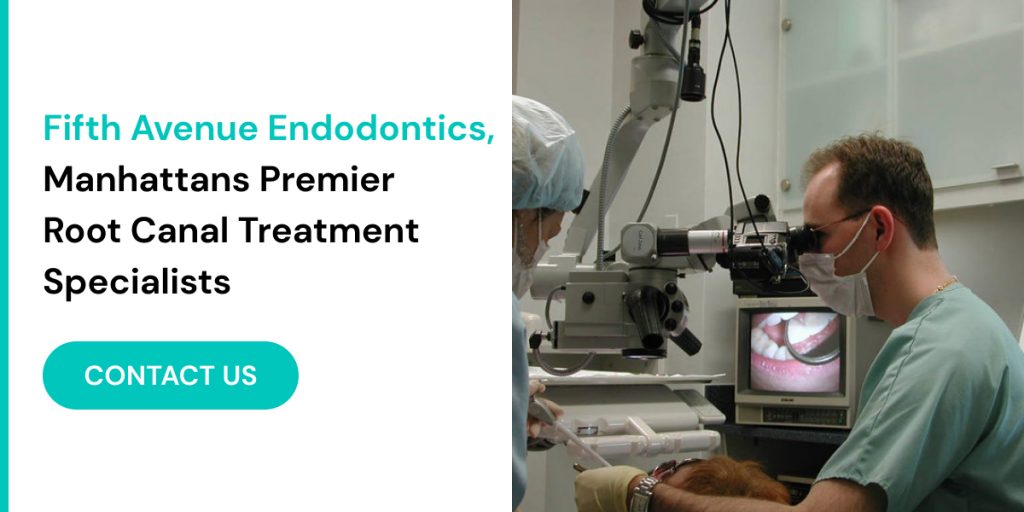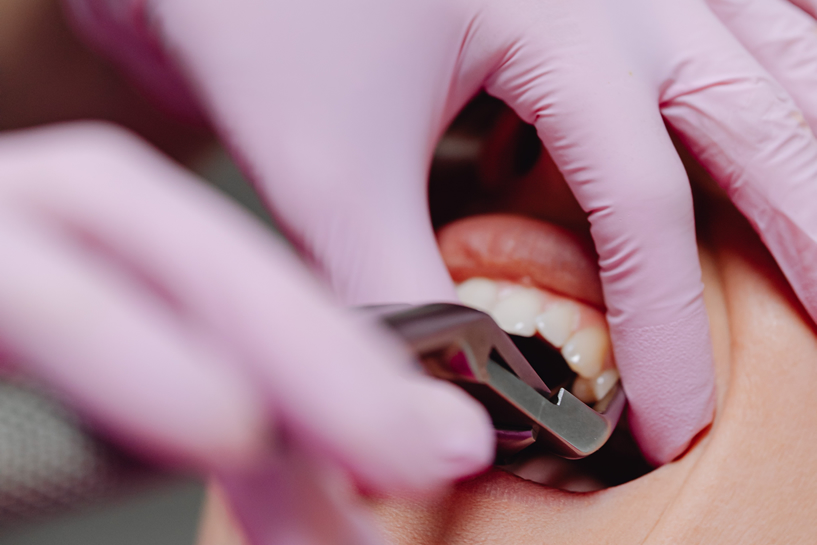When it comes to ensuring your child’s dental health, finding a specialist who understands the unique challenges of treating young patients is crucial. In Manhattan, Fifth Avenue Endodontics stands out as a leader in New York endodontics, under the expert guidance of Dr. Iofin. Their practice is dedicated to addressing the specialized needs of pediatric patients with precision and compassion. This post delves into the tailored approaches and advanced treatments available for children, such as pulpotomies to preserve tooth vitality, pulpectomies for thorough infection removal, and prompt management of dental trauma. Choosing a specialized practice like Fifth Avenue Endodontics ensures that your child receives the highest standard of care, optimizing their dental health outcomes and fostering a positive dental experience.
Understanding Pediatric Endodontics
Endodontics, a specialized field within dentistry, is dedicated to treating the inner tissues of the tooth, including the pulp and root canals. It plays a critical role in saving teeth that have been compromised by decay, trauma, or infection. While traditionally associated with adult dental care, pediatric endodontics focuses on the unique needs and developmental stages of children’s teeth.
Children’s teeth, especially their primary (baby) teeth, have distinct structural differences from adult teeth. These include thinner enamel and dentin layers, larger pulp chambers, and roots that are still developing. These structural variances necessitate a specialized approach in treatment. Preserving primary teeth until their natural exfoliation is crucial for several reasons. It supports proper chewing function, aids in speech development, and helps maintain the alignment and spacing necessary for the eruption of permanent teeth.
In pediatric endodontics, the goal is not only to save the affected tooth but also to preserve its function and integrity within the developing dental arch. This approach ensures that children can maintain optimal oral health as they grow and transition to their permanent dentition.
Pediatric endodontics encompasses a range of specialized treatments designed to address the unique dental needs of children, particularly concerning their primary (baby) teeth. These treatments are essential for preserving dental health, ensuring proper development, and avoiding potential complications that could impact a child’s oral and overall well-being.
Pulpotomies: Preserving Tooth Vitality
A pulpotomy is a common procedure performed on a child’s primary tooth when decay or infection has reached the pulp chamber—the innermost part of the tooth containing nerves and blood vessels. Unlike a full root canal treatment, which extends into the roots, a pulpotomy focuses on removing the diseased pulp tissue from the crown portion of the tooth only. This approach aims to retain the healthy pulp tissue within the roots to support the tooth’s vitality and function.
The procedure begins with accessing the pulp chamber, typically through a small opening in the crown of the tooth. The infected or damaged pulp tissue is carefully removed, and a medicated dressing is placed to promote healing and reduce inflammation. The dressing helps to disinfect the remaining pulp tissue and encourages the formation of healthy dentin over the exposed pulp.
Preserving primary teeth through pulpotomies is crucial for several reasons. Firstly, primary teeth play a vital role in chewing, speech development, and maintaining space for permanent teeth. Secondly, premature loss of primary teeth due to untreated decay or infection can lead to misalignment of permanent teeth, requiring orthodontic intervention later. By preserving the tooth’s structure and function, pulpotomies support the natural growth and development of a child’s dental arch.
Pulpectomies: Addressing Extensive Infection
In cases where decay or infection has progressed deep into the root canals of a primary tooth, a pulpectomy may be necessary to save the tooth and prevent further complications. Unlike a pulpotomy, which focuses on the removal of pulp tissue from the crown portion of the tooth, a pulpectomy involves the complete removal of infected pulp tissue from both the crown and the roots.
The procedure begins similarly to a pulpotomy, with access to the pulp chamber and root canals. The infected pulp tissue is meticulously removed using specialized instruments to ensure thorough cleaning and disinfection of the root canal system. Once cleaned, the canals are filled with a resorbable material to seal the space and prevent re-infection. This material is designed to dissolve over time as the child’s permanent tooth begins to erupt, allowing for natural replacement.
Pulpectomies are crucial for preserving the structural integrity and function of the affected tooth within the dental arch. By effectively removing infection and sealing the root canals, pulpectomies help prevent the spread of bacteria and maintain the tooth’s stability until it naturally exfoliates.
Addressing Dental Trauma: Immediate Care and Stabilization
Children are susceptible to dental trauma resulting from accidents, falls, sports injuries, or other impacts. These incidents can lead to various dental injuries, including fractured, chipped, or displaced teeth. Prompt and expert intervention is essential to assess and manage dental trauma effectively, minimizing the risk of long-term complications.
New York endodontics specialists, such as Dr. Iofin at Fifth Avenue Endodontic, are trained to handle dental emergencies involving children. Immediate care may involve stabilizing fractured teeth, repositioning displaced teeth, or managing soft tissue injuries within the mouth. Diagnostic imaging, such as x-rays, may be used to assess the extent of dental trauma and guide treatment decisions.
Treatment approaches for dental trauma in children vary depending on the type and severity of the injury. Minor fractures or chips may be addressed with dental bonding or restoration to restore aesthetics and function. More significant injuries, such as avulsed (knocked-out) teeth, require immediate re-implantation if possible or preservation techniques until professional care can be sought.
The goal of addressing dental trauma in children goes beyond immediate stabilization. It includes preventing complications such as infection, promoting healing, and preserving the affected tooth’s long-term viability. Follow-up care is essential to monitor healing progress and ensure optimal outcomes for the child’s dental health.
Pediatric endodontic treatments like pulpotomies, pulpectomies, and the management of dental trauma are essential for maintaining the oral health and development of children. These specialized procedures aim not only to save affected teeth but also to preserve their function within the growing dental arch. By addressing dental issues early and effectively, specialists in New York endodontics, such as Dr. Iofin at Fifth Avenue Endodontic, play a crucial role in ensuring that children maintain healthy smiles and optimal oral function throughout their childhood and beyond.

Unique Challenges in Pediatric Endodontics
Behavioral Management
One of the significant challenges in pediatric endodontics is managing the child’s behavior during the treatment. Young children may experience anxiety or fear about dental procedures. Endodontists who specialize in treating children are skilled in employing techniques to make the experience as stress-free as possible. This can include using child-friendly language, creating a welcoming environment, and utilizing sedation if necessary.
Anatomical Differences
Children’s teeth are not just smaller versions of adult teeth; they have distinct anatomical differences that require specialized knowledge and techniques. Primary teeth have larger pulp chambers relative to their size and thinner enamel and dentin layers, making them more susceptible to rapid decay. Additionally, the roots of primary teeth are resorbed naturally as the permanent teeth develop and erupt. Endodontists must consider these factors when planning and performing treatments.
Growth and Development Considerations
An essential aspect of pediatric endodontics is understanding the ongoing growth and development of a child’s dentition. Preserving primary teeth until they are naturally replaced by permanent teeth is crucial for maintaining the correct spacing and alignment of the developing adult teeth. Early loss of primary teeth can lead to malocclusion, requiring orthodontic treatment in the future.
The Role of Early Intervention
Early intervention in pediatric endodontics is pivotal for maintaining children’s dental health and preventing more serious issues down the road. Regular dental check-ups play a crucial role in this process, enabling dentists to detect problems early on. Common issues that can be identified during these check-ups include tooth decay, pulpitis (inflammation of the pulp), and developmental anomalies.
By identifying these issues at an early stage, pediatric endodontists can often implement minimally invasive treatments. For instance, small cavities can be treated with dental fillings before they progress to the point where more extensive procedures like pulpotomies or pulpectomies are necessary. This approach not only preserves more of the natural tooth structure but also reduces the potential discomfort and anxiety that children may experience during dental treatments.
Moreover, early intervention helps to maintain the integrity of the primary teeth, which are essential for proper chewing, speech development, and the alignment of permanent teeth. Premature loss of primary teeth due to untreated decay or infection can lead to complications such as misalignment of permanent teeth, which may require orthodontic intervention in the future.
Regular dental check-ups also provide an opportunity for pediatric endodontists to monitor the growth and development of children’s dentition closely. This proactive approach allows them to anticipate potential issues and intervene appropriately, ensuring that children’s dental health remains on track throughout their formative years.
In essence, early intervention in pediatric endodontics not only addresses immediate dental concerns effectively but also contributes to the long-term oral health and well-being of children. By partnering with a specialized practice like Fifth Avenue Endodontic in New York, parents can ensure that their children receive comprehensive care that emphasizes prevention and early treatment, setting a foundation for a lifetime of healthy smiles.
The Importance of a Specialized Practice
Choosing a practice that specializes in pediatric endodontics, such as Fifth Avenue Endodontic, ensures that your child receives the highest standard of care. Dr. Iofin and his team understand the specific needs of young patients and are dedicated to providing compassionate, effective treatment. Their expertise in New York endodontics means they are well-versed in the latest techniques and technologies, ensuring optimal outcomes for their patients.
Preparing for Your Child’s Endodontic Appointment
What to Expect
When you bring your child to an endodontic appointment, the first step will typically involve a thorough examination and diagnostic imaging, such as x-rays, to assess the condition of the tooth. Dr. Iofin will then discuss the recommended treatment plan, explaining each step of the procedure in a way that both you and your child can understand. The team at Fifth Avenue Endodontic prioritizes patient education and will ensure you feel informed and comfortable with the treatment plan.
Helping Your Child Feel Comfortable
To help your child feel more at ease before the appointment, explain the process in a simple, reassuring way. Let them know that the dentist is there to help their tooth feel better. Bringing a favorite toy or blanket can also provide comfort. The staff at Fifth Avenue Endodontics is experienced in working with children and will do everything possible to create a positive and calming environment.
Post-Treatment Care
After the endodontic treatment, it’s essential to follow the post-care instructions provided by your endodontist. This may include avoiding certain foods, maintaining good oral hygiene, and attending follow-up appointments to monitor the healing process. Ensuring that your child follows these guidelines will help prevent complications and promote a smooth recovery.

Conclusion: Ensuring Optimal Dental Health for Your Child
The field of pediatric endodontics is integral to maintaining and restoring the dental health of young patients. Through treatments like pulpotomies, pulpectomies, and addressing dental trauma, specialists in New York endodontics, such as Dr. Iofin at Fifth Avenue Endodontics, provide invaluable care. By understanding the unique challenges and approaches involved in pediatric endodontics, parents can make informed decisions to ensure their child’s oral health is well-managed.
Early intervention and specialized care are key to preserving your child’s teeth and supporting their overall dental development. If your child needs endodontic treatment, trust the expertise and compassion of a practice dedicated to pediatric care. Fifth Avenue Endodontics is committed to delivering the best possible outcomes for their young patients, ensuring a healthy smile for years to come.

